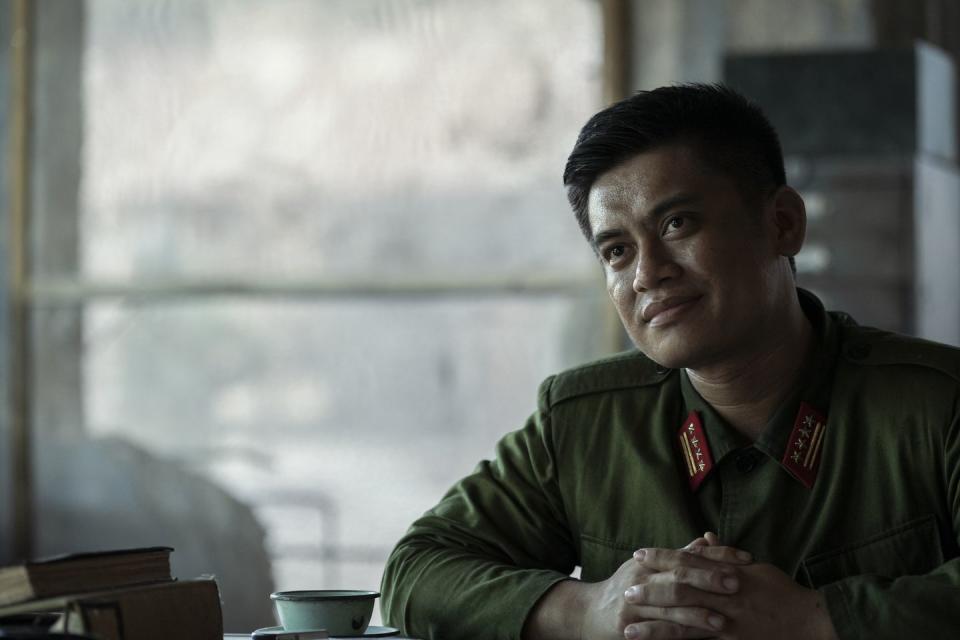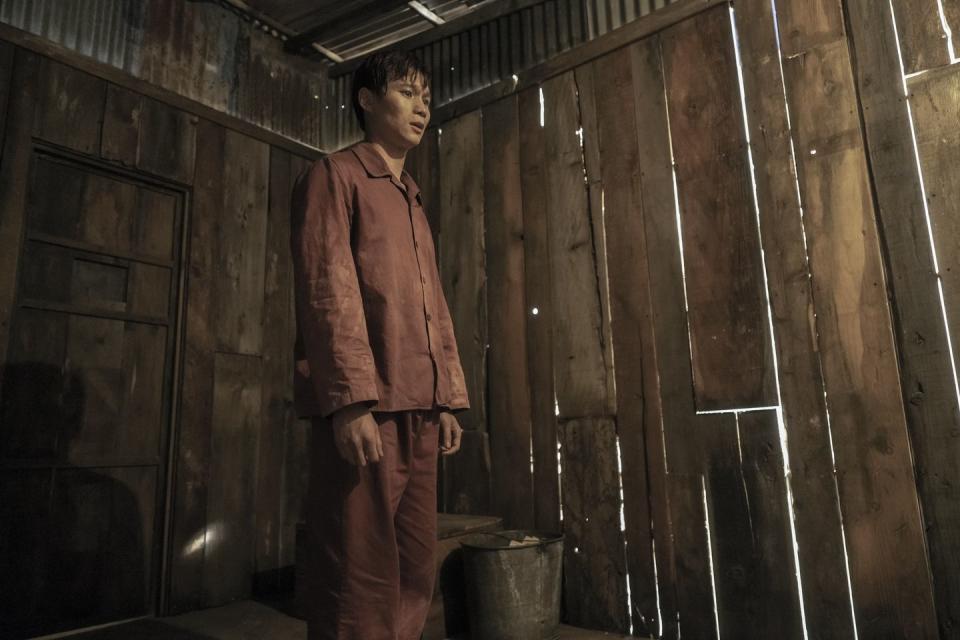I Have One Thing to Say About the Brilliant Finale of ‘The Sympathizer’

“Endings are hard, aren’t they?” You’ve got that right, The Sympathizer. The finale, airing on HBO Sunday night, knows how hard it is to stick the landing—and it’s pretty damn meta about it. “Why do I have this ominous feeling that the reviews are not going to be good?” the Captain asks. Sir, what are you talking about?!? You’ll only see a thumbs-up from me—because The Sympathizer stuck the landing. Let’s break it down.
Our protagonist is currently back home in Vietnam in a reeducation camp, where he’s forced to write his story over and over and over again. So far, what we’ve witnessed throughout the series is that exact story—told and retold. But what was it all for? Why go through all that spying, secret keeping, and reluctant murdering if you just end up being tortured by the same people you’re allegedly fighting for? Against all odds, the Captain is still fighting for the cause. The cause just doesn’t care.
The night before their suicide mission into Vietnam, the men party at a bar called the Hell Hole. There, CIA agent Claude (Robert Downey Jr.) reveals to the Captain that he heard his confession to Sonny. How, you ask? Well, he had the journalist’s entire apartment bugged. “What did you expect?” Claude asks him. “This is what we do.” Still, he offers him a way out. He pours a substance in the Captain’s drink that would make him awfully sick for the next forty-eight hours, taking him out of the mission entirely. The Captain refuses to drink it. “It’s your funeral, pal,” Claude tells him.
In the morning, everyone is killed except for the Captain and Bon (Fred Nguyen Khan). They’re taken to the camp, where they’re told that they’re “educatees” rather than prisoners. The cuffs around their ankles say otherwise. The Commandant also continues to edit the story. Though he demands the complete truth from the Captain, he removes a section in which the soldiers assault Bon for claiming that he was a proud member of the former Army of the Republic of Vietnam.
Above the Commandant is the Commissar. He’s the real head honcho around here—and he wears a scary white balaclava with just a single eyehole cut from it. He was hit with napalm on the Day of Liberation, leaving him disfigured and addicted to morphine. After a year of writing in solitary confinement, the Captain finally presents his story to the Commissar—who is revealed as his old friend Man (Duy Nguyễn). “Everything about our home is different than I had imagined,” the Captain tells him.

Placed in an electric chair, the Captain now spends his days in constant torment. Man pleads for the Captain to confess, but he believes that there’s nothing left in his story to tell. “You wrote coded messages between the lines,” Man tells him. “What I want are the memories that are hidden between the lines.” They shock him again and again, eyelids taped open. It’s sadistic and seemingly pointless, but Man claims that he’s being merciful compared with what it might’ve been like had he not been in charge.
Eventually, the Captain is tortured so much that he remembers a brief memory of his father. It’s the final Downey antagonist—a French priest who sexually assaults his mother in Vietnam. His repressed resentment of this man is why every character who’s been a white authority figure is played by Downey. In Claude, the professor, the friendly politician, and the director, the Captain both searches for their approval and despises them at every turn.
Bringing the Captain to his room, Man shows him the scene from the Vietnam War film he worked on in which a crazy Method actor attempts to assault the General’s daughter. From what the audience now knows, it perfectly mirrors his mother’s own experience. Unbeknownst to the viewers, it also mirrors a scene that the Captain is still lying to us about. Yes, our unreliable narrator is guilty as well—just not how you’d think.
Back in The Sympathizer’s premiere episode—when the woman wouldn’t sell the Captain out while under interrogation at the movie theater—he left out a couple details. Namely, that he sat by as the South Vietnam secret police sexually assaulted her with a Coca-Cola bottle. At first, he attempts to say that he tried to stop it. But he did not. To the Captain’s surprise, the woman is here at the camp as well. She reveals that she still never sold him out, because she “wanted to believe that the secret [she] had guarded was precious.”

Man finally removes his mask and poses one final question to the Captain. He points to a sign that reads, “Nothing is more precious than independence and freedom.” He gives the Captain three tries to guess the right answer. “Belief?” Wrong. “Family?” Try again. “Nothing.” Ding ding ding! Nothing is more precious than independence and freedom. When everything they fought for is gone, nothing is all that is left. Throughout The Sympathizer, the Captain claims that he is a true revolutionary—and one who is telling his true story. But what is belief if it is based on lies? “I’m sorry to make the lesson so torturous,” Man tells him, wiping tears from his scarred face. “I learned for myself that you have to learn it the hard way.”
With Man’s help, the Captain and Bon escape. Bon never learns that his best friend was a communist spy, or that Man was the Commissar. “No more confessions,” he tells the Captain. “I don’t care what they made you say in there. You’re my friend.” At night, they board a boat to escape the country, along with dozens of other families. Bon soothes a crying baby with a song, and the entire boat joins in. The tune is by Trinh Công Son, one of the country’s most prolific anti-war songwriters. As the Captain looks out at the night sea, he’s greeted by all the ghosts of the Vietnamese who were killed by war. “I still write every day, but for myself,” he narrates. “Rewrite. Relive. Restart.”
You Might Also Like


